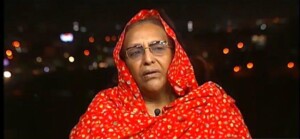Poor suffer as cost of living leaves Sudan’s minimum wage far behind
Rising prices and runaway inflation over the last two years have eroded the value of Sudan’s official minimum wage, according to a study released by the Sudanese Communist Party (SCP) Central Union Office.
Rising prices and runaway inflation over the last two years have eroded the value of Sudan’s official minimum wage, according to a study released by the Sudanese Communist Party (SCP) Central Union Office.
Buseina El Kharasani of the SCP Central Union Office says the study shows that the official minimum wage of SDG465 ($70) covers only five percent of the basic needs of an average family, while the minimum monthly requirement is more than SDG8,500 (at a time when the minimum wage is SDG 465.
Buseina El Kharasani, a member of the Central Union Office, said that the rise in inflation rates over the past two years has raised the value of these needs from SDG 5900 to more than SDG 8,500 ($1,275).
She highlighted the large gap between income and living requirements and pointed out that the vast majority of low-income people in Sudan are really suffering.
Soaring inflation
The lifting of US economic sanctions has had little effect on the rise of inflation in Sudan. In a statement last week, Sudan’s the Central Bureau of Statistics recorded 35.13 per cent percent inflation in September – an increase of 1.5 per cent from August.
Foreign exchange dealers in Khartoum told Radio Dabanga last week that the exchange rate of the Dollar rose to SDG 20.7 after a short drop witnessed following the US decision to lift sanctions.
El Sadig El Mahdi, the President of the National Umma Party (NUP), says that the lifting of US economic sanctions “strips the government of the veil and reveals that the problem in the Sudanese economy is subjective and has nothing to do with external factors”.
He said that the US decision stipulated obligations that Sudan must abide by in order to continue lifting the sanctions, including achieving peace, human rights, and cooperating to achieve the priorities of the USA.
Experts
“The lifting of sanctions has given the government a false sense of victory,” said Sudanese economist Dr Siddig Kabello. “Unless the government's internal politics change in terms of security and rule of law, the lifting will not lead to any change that would attract foreign investment.”
Economic expert Prof Hamid Eltigani who is head of the Department of Public Policy and Administration at the American University in Cairo says the permanent lifting of the trade embargo on Sudan as declared by Washington two weeks ago, “has mostly a psychological effect.
“The lifting of the sanctions opens the door for Sudan to free trade and investment, but the problem is that Khartoum is bankrupt and has nothing to sell,” he commented in an interview with Radio Dabanga.
“Almost all industries have become inoperable in Sudan, as their structures have collapsed,” he explained. “Most of the productive forces migrated to urban areas and are trying to survive by doing marginal jobs in the informal sector. Others are living in the various camps for the displaced.
“In addition, the country’s infrastructure and the education sector that is supposed to provide qualified production cadres have collapsed completely.”











 and then
and then